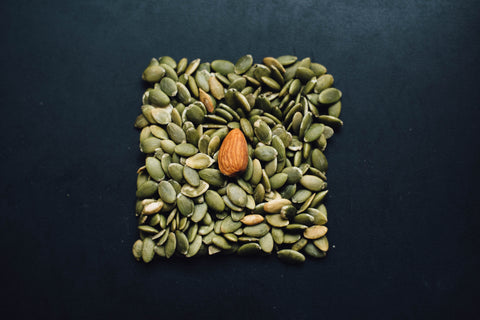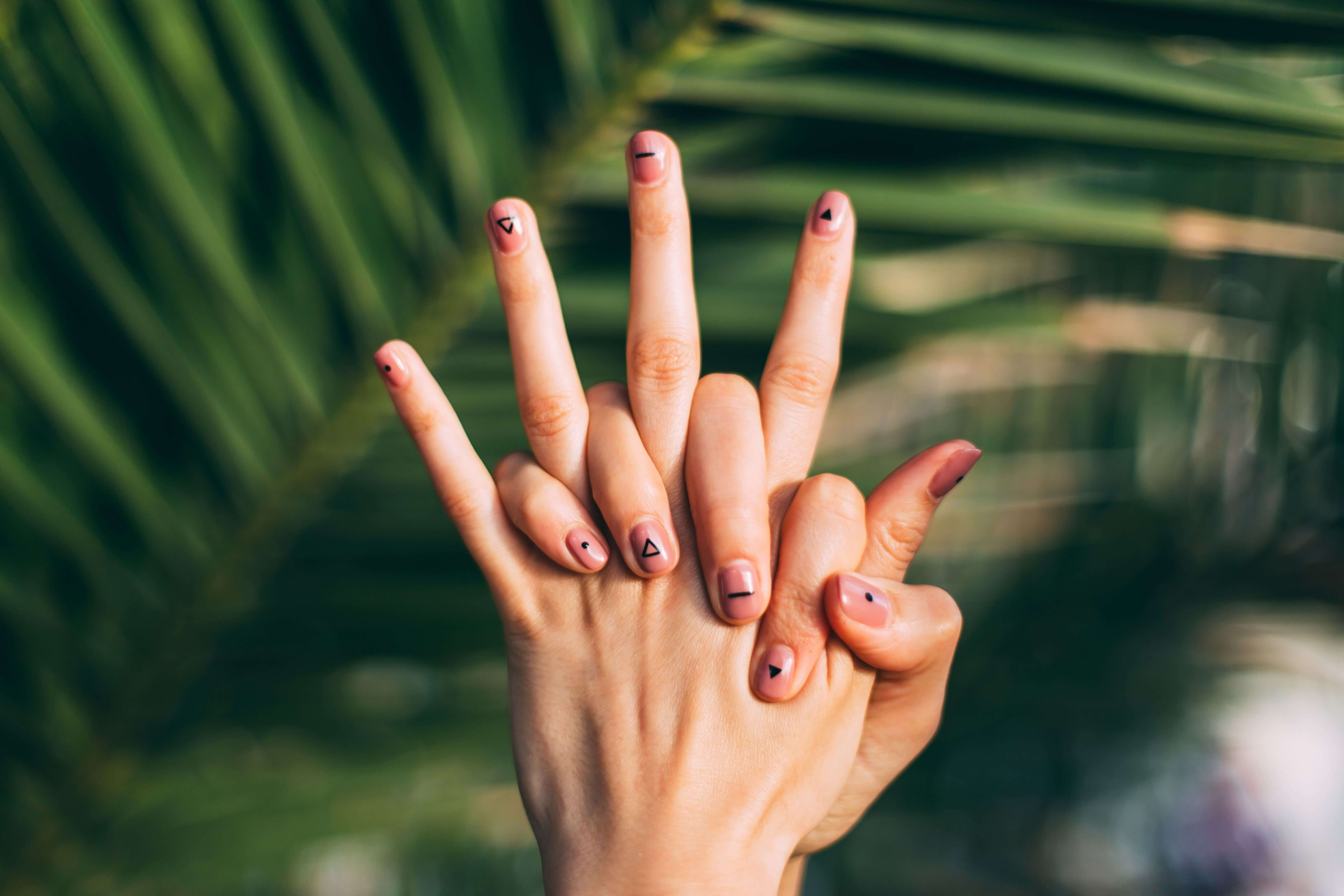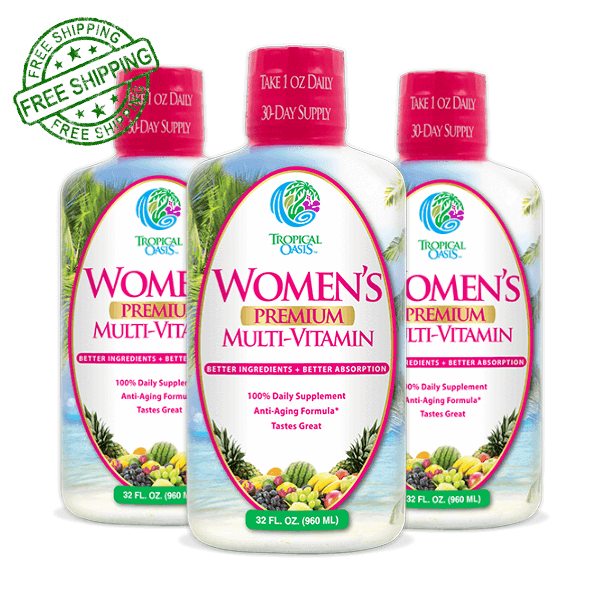Vitamins You Should Take for Anxiety

Anxiety is a common emotion that produces feelings of worry, stress, and tension. With people who have Anxiety Disorder, these feelings grow stronger and continually worsen, until their bodies are affected by the emotions. Without remedies that bring positive results, they may experience very high blood pressure and other negative physical reactions, which can escalate into panic attacks. When these anxiety attacks or panic attacks occur frequently, they become quite serious and can cause a debilitating lack of use of bodily functions and senses.
A person who suffers from Anxiety Disorder should contact a mental healthcare professional and may need medication and other treatment. Combining these medications with vitamins can have serious side effects unless you have discussed the combinations and had them approved by a doctor. Anxiety Disorders include Obsessive-Compulsive Disorder (OCD), Posttraumatic Stress Disorder (PTSD), and Acute Stress Disorder (ASD).
People who experience general anxiety may have intense feelings of discomfort or stress, difficulty focusing, undergo excessive lack of sleep, uncontrollable feelings of worry, and strong irritability. Continuously having these feelings of anxiety can have long-term effects due to long periods without sleep, lack of appetite or overeating. Without effective remedies, it can produce negative results in your bodily health, your career, or your relationships.

Causes of Anxiety
Before looking into what vitamins are good for anxiety and panic attacks, it can be helpful to identify some of the causes of anxiety, in order to best analyze the next steps of action. Some common instigators of anxiety and panic attacks are:
Triggers: When someone has experienced something traumatic in the past, whether that be during childhood or during a different vulnerable period in their life, some things in their daily life may happen that remind them of a specific traumatic occurrence and can evoke strong emotions as a result.
Environmental aggravations: Sometimes a sudden change in daily life, such as a new job, a loss of finances, or a serious change in family life (such as a divorce or a death in the family) can produce feelings of anxiety.
Genetics: In some people, there may not always be a specific event that sparks these feelings of anxiety or panic; instead you may be more prone to these reactions because of the specific makeup of your brain chemistry from hereditary factors.
Withdrawals: If you have recently given up any chemical substances, alcohol, or have quit smoking, your body is likely to go through withdrawals. In this time, unexpected reactions could occur within your body that produce anxiety from these unfamiliar and frightening feelings.
Vitamins That Are Good for Anxiety and Panic Attacks
Now that you have examined some options to identify some of the stressors that may be causing unpleasant stressful reactions, it is time to consider some of the best vitamins for anxiety and panic attacks. Remember that vitamins should not replace any prescribed medications, but with the right combinations and dosages, you can supplement your treatment. If you are not taking any medications for anxiety and are looking for some natural, healthy remedies, these vitamins can make a difference in managing the effects of anxiety.
Vitamin B-Complex
A B-Complex vitamin combines all eight of the most important B vitamins that your body needs. The two most crucial that you want to look for are Vitamin B6 and Vitamin B12. Among these include thiamin and biotin, which improve your metabolism. Riboflavin and pantothenic acid convert food into energy and work as antioxidants. Niacin and folate help your DNA with cell repair, and cobalamin, or B12, is crucial for your neurological functions.
Taking daily B-Complex supplements works for your body’s metabolism, cell generation, and your brain’s activities. Altogether, they work to stabilize and even out these three vital aspects of your emotional and physical system, to give you a balanced and relaxed approach when anxiety begins.
Vitamin B12
Vitamin B12 is the most famous of the B vitamins because it has the strongest impact on the way your brain processes chemicals that filter your mood and emotions. You can get vitamin B12 by eating foods like poultry, lean meat, dairy products, and eggs, but if you follow a vegan or vegetarian diet, you may have a hard time getting these vitamins into your body, so taking a daily supplement may be a good option. Those with digestive disorders like Celiac’s Disease often have difficulty absorbing Vitamin B12 through diet, so if you experience this condition, you may want to take the daily supplement.
Teenagers also need adequate, and even higher levels of Vitamin B12 than fully developed adults. Since teenagers have some of the highest risks of depression and anxiety, it is advised that adolescents take plenty of the vitamin in their diet.

Amino Acids
One of the leading causes of anxiety in the brain is a result of low levels of neurotransmitters, which combine with genetic predispositions and hormonal imbalances that work together to create feelings of nervousness and apprehension. Amino acids are good vitamins for anxiety and depression because neurotransmitters use amino acids to absorb proteins in the brain. Amino acids are the medium that allows your brain’s enzymes to transform the proteins into neurotransmitters.
The blood-brain barrier keeps dangerous substances away from the brain, but while doing so, it often blocks access of neurotransmitters to the brain. The best way to counteract this is to take amino acid supplements at the same time as a protein-heavy meal (such as red meat) to break through the blood-brain barrier.
GABA is also a type of amino acid that protects your emotions from getting over-excited and out of control. If you have low levels of GABA in your system, this is partially responsible for addictions to substances like alcohol or prescription medications.
Vitamin D
Vitamin D plays an important role in mental health. If you have a Vitamin D deficiency, it can increase your levels of anxiety, panic, or depression. Vitamin D is absorbed through the skin, directly from the sun. That is why people often use the expression, “the winter blues.” In the climates of North America and Europe, the sun sets earlier in the winter, and in many regions is often hidden behind stormy clouds, even during the daytime. So, if you notice a change in your mood and behavior around the time the seasons are changing, you may be experiencing a lack of Vitamin D.
This may be the time to begin taking some supplements. It is not uncommon for a medical professional to prescribe Vitamin in large doses to their patients, rather than any type of chemical medication. Some people take as much as 5000 IU per day during times when their anxiety is at its highest. If you are not sure if your body is suffering from a deficiency, you can take a simple blood test: 25-hydroxy-vitamin. When taking the supplement, be sure your dosage contains Vitamin D3, or cholecalciferol. It is more effective than Vitamin D2, or ergocalciferol, which is mainly synthetic and will not improve your anxiety symptoms.
You may be wondering if it is possible to add extra Vitamin D to your diet through foods as well as the sun. It is possible to absorb it through eggs and fatty fish.
Fish Oil and Omega 3
Speaking of fatty fish, the Omega 3 vitamins that you can get from fish oil are an excellent way to fight anxiety. Omega 3 fatty acids contain the essential fats, EPA (Eicosapentaenoic Acid) and DHA (Docosahexaenoic Acid). Both are important for your mental health. DHA improves your blood flow during mental tasks, so when you are in the middle of experiencing anxiety, a high level of DHA can improve your clarity on the situation and help you to respond to stressful emotions with greater clarity and rationality.
DHA also aids in muscle recovery and reduces inflammation. Your body and your mind are not two separate things. They work together, and when your body is relaxed and in good condition, your brain will be more at ease as well. It is important to maintain your body and mind together in a calm and healthy state, so that when you encounter something like a traumatic trigger or a withdrawal from a chemical substance you have recently quit consuming, your body and mind will be better prepared to take care of the situation and to keep those anxious thoughts and feelings subdued.
EPA provides many benefits to your mental health as well. EPA strengthens the cellular formations in your brain, which makes it stronger. Studies have shown that women who take a supplement with Omega 3 fatty acids during their pregnancy have increased their child’s scores on tests of intelligence and mental function during childhood. Humans lose 85,000 brain cells every day, and we all know that the aging of the brain is no joke. So, taking a healthy dose of Omega 3 vitamins every day can go a long way in strengthening your brain and preventing it from weakness as you age.

Foods That Prevent Anxiety
Brazil nuts contain selenium, which is another inflammation reducer. Generally, when your brain is experiencing intense mood changes like those that occur in anxiety attacks it undergoes a lot of inflammation, so finding foods and vitamin supplements that can reduce inflammation is safe protection from the symptoms of anxiety.
Selenium is also an antioxidant, which can prevent cell damage. Keep in mind that selenium is a powerful source and should not be over-consumed. It is recommended that you take just 400 micrograms per day. This would amount to 3 or 4 brazil nuts per day. So, rather than eating handfuls at a time, which is easy to do when snacking on nuts, it may be safer to combine brazil nuts with a mixture of other types of nuts to even out your intake of vitamins and minerals.
Eggs are an excellent source of amino acids, which were mentioned earlier. They also contain vitamin D and a protein called tryptophan, which is a complete protein that has been proven to improve the functions of the brain such as memory, behavior, mood, and sleep, which are all essentials to a healthy mind. You can get amino acids from fish, but if you are a vegetarian, eggs are a good alternative. If you are a vegan, bananas are a source of tryptophan, which can be an alternative to eggs.
Pumpkin seeds pack a punch with many health benefits. They are full of potassium, which keeps your blood sugar stable. Many people take extra potassium to reduce their blood pressure. When you experience anxiety, your blood pressure levels raise significantly, so if you can maintain a steady level of blood sugar, you will have a better chance of lowering anxiety levels.
Pumpkin seeds also contain zinc. Low levels of zinc influence oxidative stress, which means that deficiency of zinc lessens the effectiveness of GABA, preventing amino acids to get through the blood-brain barrier. When this happens, your emotions can get overworked.
Dark Chocolate is another source of tryptophan, which the body uses to turn into neurotransmitters like serotonin, which can enhance your general mood. Dark chocolate contains magnesium. When combined with calcium, magnesium reduces symptoms of anxiety. Milk chocolate is not beneficial for mental health because it contains much more sugar and less cocoa than dark chocolate, which negates the positive effects of dark chocolate.
Turmeric is a spice commonly used in Indian dishes, and it contains DHA, which is also found in Omega 3. It is known to improve cell repair and prevent inflammation. Turmeric is also made up of curcumin, which has anti-inflammatory qualities.

Herbs That Are Good for Anxiety
Chamomile has been used for medicinal purposes for hundreds of years. There are two different types of chamomile, German chamomile, and English chamomile. It has been shown the properties of German chamomile are more potent than English (also called Roman) chamomile. The herb has been used to treat symptoms like stomach pain and sore throats, but it also has properties that promote relaxation, reduce anxiety, and help mood disorders. While its calming effects have not proven to help the condition in the long run, results have shown that drinking a cup of chamomile tea can help to relax and calm excited nerves.
Passionflower, or passionfruit, is a flower that is grown in South America and it is good for anxiety because it contains GABA and counters neurotransmitters that cause stress in the brain. The passionflower has other calming effects as well. Clinical studies showed that regular usage showed similar results to some anti-anxiety medications. Since it is an herb, it is less powerful than medications, nevertheless, the results were similar. Many users of passionfruit claim that it even has a sedative effect.
Valerian root can help with anxiety that causes insomnia at night. Valerian has been used for centuries as a medicinal treatment for insomnia. It has also been used to treat nervousness, headaches, trembling, and stress because it is believed to produce high levels of GABA. If you take Valerian as a supplement, you should take 300-600 milligrams before bed at night. If you drink it as a tea, you should drink about 3 to 5 grams in one cup. These are quite strong dosages, so if you take the full dose, you could experience sleepiness during the following day as well. So, consider using it in moderation. It will not harm you to take a high Valeric dose, but you may decide that the side effect of drowsiness is not suitable for getting through the day or driving.
Ashwagandha is a woody plant from India and North Africa. It is an adaptogen, which can help your body manage stress by improving your blood sugar levels, mood, and memory. This herb can lower levels of cortisol in your adrenal glands, which is a hormone that responds to stress. Taking 5 grams a day consistently, for a lengthy period of time can eventually lower the impact of anxiety or stress.
Green Tea contains the amino acid L-theanine, which reduces stress and relaxes your mind and body. You can, of course, drink green tea as a beverage, but if you do not enjoy the taste you can also consume green tea probiotics or even L-theanine supplements.

Making Changes That Have Long Term Solutions
Now that you have read and discovered multiple solutions about what vitamins are good for anxiety, you will have to decide which natural remedies you will begin taking to start making lasting changes to your diet, that will give your mind and body the strength it needs to fight the effects of anxiety. If you are dealing with anxiety or panic attacks, you deserve to find relief from its symptoms and develop strategies that will prevent the disorder in the long run.
Now is a good time to evaluate your diet and make a plan for supplementing foods daily that can boost your immune system and help your mental health. You will also need to decide which vitamins you will begin taking on a daily basis because vitamins are necessary as a long-term solution. They must be taken consistently to produce lasting effects, that will allow you to move freely within your work, relationships, and even sleep, by managing your health condition.
To help manage anxiety effectively, consider incorporating Magnesium and Vitamin D for anxiety into your daily routine for a balanced and peaceful state of mind. Explore our collection to find the perfect supplement for your needs.



